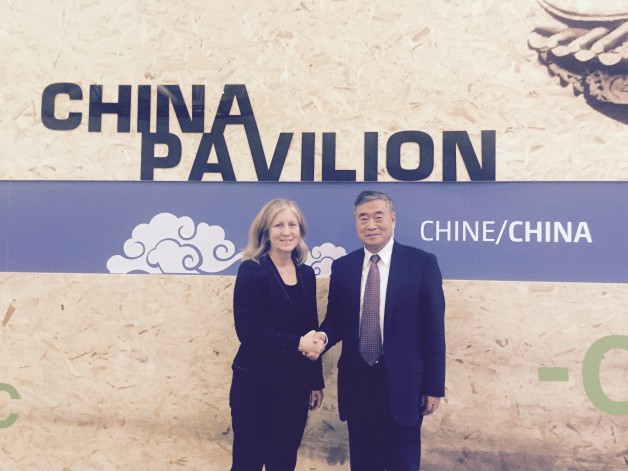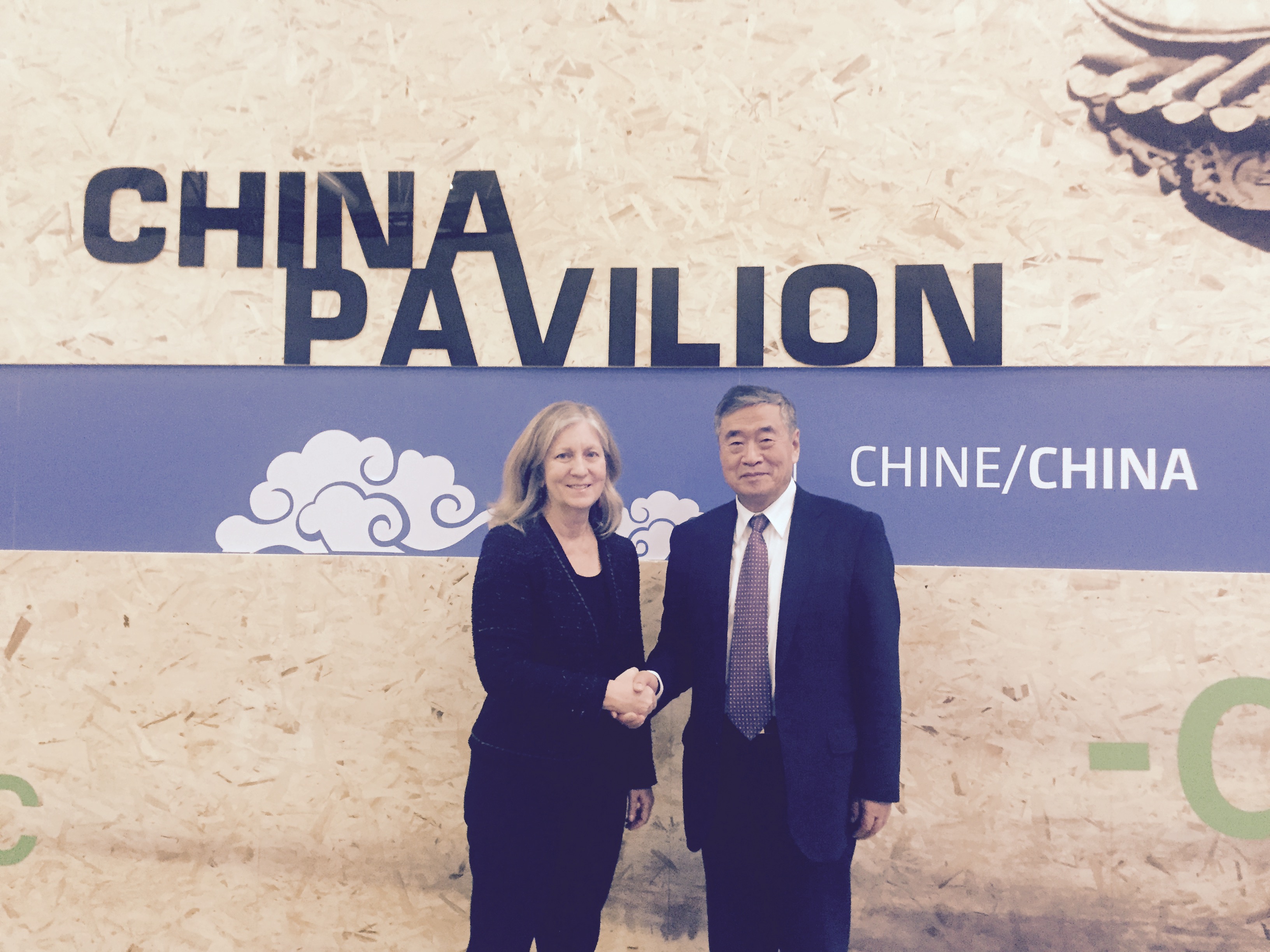UC Berkeley media contact: Sarah Yang, (510) 643-7741
Lawrence Berkeley National Laboratory (Berkeley Lab) and UC Berkeley announced they are partnering with Tsinghua University in Beijing to form the Berkeley Tsinghua Joint Research Center on Energy and Climate Change, a center that will aim to develop scientifically based clean energy solutions and the next generation of leaders to champion those solutions.

Lynn Price, head of Berkeley Lab’s China Energy Group, and He Jiankun of Tsinghua Unviersity, at the MOU signing in Paris.
The three parties signed a Memorandum of Understanding in Paris today. “Berkeley Lab’s China Energy Group has been working collaboratively in China for 27 years and welcomes this new Joint Research Center as a platform for expansion of the many areas of research that the Group is already pursuing, such as long-term modeling of energy and related emissions in China and evaluation of energy efficiency and clean energy policies,” said Lynn Price, head of the China Energy Group.
UC Berkeley’s contributions will be led by the Berkeley Energy & Climate Institute (BECI). “BECI combines the assets of the Berkeley campus and Berkeley Lab to create the largest energy and climate consortium in the U.S.,” said BECI Director Paul Wright, who is also a UC Berkeley professor of mechanical engineering. “Now, combined with the power of the Tsinghua scientists, we have the ability to address the science, engineering, policy, commerce, and education needed to rapidly move the world to clean energy solutions.”
The core activity of the new Center will be conducting scientific research and analysis on clean energy solutions for China, focusing on areas offering the greatest impact, such as low-carbon cities, carbon markets, and clean energy system planning and integration. At Tsinghua the collaboration will be led by He Jiankun, former vice president of Tsinghua University and currently the director of the Institute of Low Carbon Economy and a professor of engineering physics.
“We are excited to combine our experience and expertise with that of the professors and researchers at UC Berkeley and Tsinghua University, two of the world’s most prestigious research universities, to serve as the world’s leading research center focused on understanding China’s energy, climate change, and development challenges,” said Nan Zhou, deputy lead of the China Energy Group.
The Joint Research Center will also build outreach programs to train, for example, mayors, business executives, and graduate students. Additionally it will support an active scholars exchange program with leading Chinese universities, businesses, and think tanks.
# # #
Lawrence Berkeley National Laboratory addresses the world’s most urgent scientific challenges by advancing sustainable energy, protecting human health, creating new materials, and revealing the origin and fate of the universe. Founded in 1931, Berkeley Lab’s scientific expertise has been recognized with 13 Nobel prizes. The University of California manages Berkeley Lab for the U.S. Department of Energy’s Office of Science. For more, visit www.lbl.gov. DOE’s Office of Science is the single largest supporter of basic research in the physical sciences in the United States, and is working to address some of the most pressing challenges of our time. For more information, please visit science.energy.gov.
The University of California was chartered in 1868, and what would become its flagship campus was soon established at Berkeley. UC Berkeley is one of the nation’s most prestigious universities, public or private, and is internationally recognized for its academic excellence and research achievements. More than 27,000 undergraduates and 10,000 graduate students are enrolled in 170 academic departments and programs. The campus currently has more than 1,600 full-time faculty members, including seven Nobel laureates, four Pulitzer Prize winners, three Field Medalists, and 144 members of the National Academy of Sciences. For more information, go to www.berkeley.edu.
